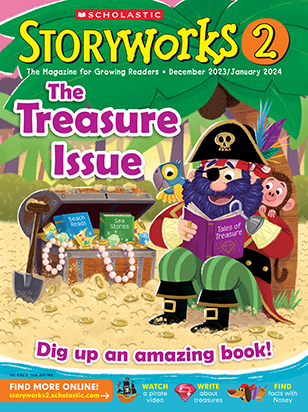Art by Tom Garrett; Shutterstock.com (All Images)
I want to start by saying it’s not OK to lie about big things. You shouldn’t lie when you have done something wrong. You shouldn’t lie when your family or teacher asks you to tell the truth.
But I think it is OK to lie about little things sometimes. What should you do if a friend asks you if you like her shirt and you don’t like it? If you tell the truth, you could hurt her feelings.
You could tell a white lie. You could say you like it. That way, she won’t feel bad.

